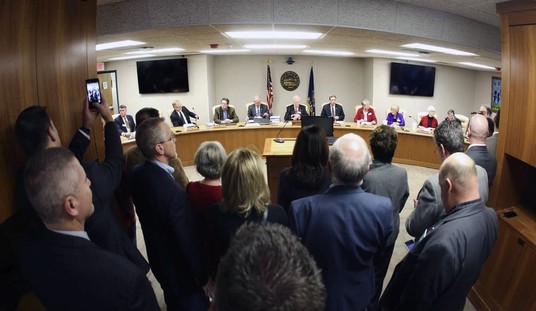When I was a teenager, I had a nemesis. She was a year younger than me, pretty, and seemed to take joy in finding something — anything — for which she could mock me. One November day, being from an impoverished family, I had nothing proper for my feet but Jellies — those flimsy plastic shoes no one in their right mind would wear in cold weather. She spotted me in the hall, stopped, looked me over, sniffed, and announced, “Jellies? In winter?” before striding away with her friends in triumph.
It was petty. Laughable, really, and my friends and I did laugh about it. But that’s the nature of some people: they seize on small things, magnify them into crimes, and use them to score social points. Watching politics today, I can’t help seeing the same dynamic.
Many on the left, and some on the right, behave like my teenage nemesis: quick to pounce on the smallest detail — a word choice, an old photo, a misplaced joke — and inflate it into a moral indictment. Instead of grappling with real issues, they find status in nitpicking their opponents into caricatures. It’s the same old “Jellies in winter” routine, just played out on a national stage.
- Small infractions are inflated into crises.
- Status points are won through public shaming.
- Real issues go unaddressed while petty battles dominate.
But then there is a second story.
My high school also had a janitor with a reputation. Every year, he chose one girl as his “favorite” and smothered her with unwanted attention. Everyone knew it was creepy. In tenth grade, it was me. My friends and I went through ridiculous contortions to avoid him after school. The following year, he chose my nemesis, and everyone knew it.
One cold, rainy afternoon, my mother came to pick me up. I spotted Nemesis shivering under the porch roof outside, refusing to go inside where the janitor lurked. “Mom, we have to give her a ride,” I said, and explained. We pulled up to the porch. She declined, insisting her mother would be there soon. But after that, she never picked on me again.
Because here’s the thing: facing a real threat changes the game. Petty battles fall away when survival, dignity, or safety is at stake. And compassion — the decision to help even a rival — can dissolve enmity faster than any counterattack. This is why 9/11 changed how our nation behaved, even if it was only for a little while. And it's why Trump focuses on the 80/20 issues; he is gradually winning people over by engaging with issues most people are worried about.
Today, we don't seem to have an awareness of that common enemy. We waste energy on petty fights, mocking each other’s tiny issues, while ignoring the greater dangers that threaten us all. If we looked past the nitpicking and focused on what truly matters, we might actually find common ground.
Here are just a few of those shared dangers:
- Corruption in institutions — when rules protect the powerful instead of the vulnerable.
- Exploitation of children — whether by predators, traffickers, or corporations.
- Erosion of free speech — when fear and censorship silence honest voices, whether from the government or from our neighbors.
- Loss of community trust — when families, schools, and neighborhoods fail to provide safety and belonging.
So how do we move forward? It doesn’t take grand gestures. It takes small, consistent actions, close to home:
- Start small, locally. Focus on your neighborhood, your school board, your town council — the places where ordinary people still have real influence.
- Don’t engage in petty fights. When baited, follow Charlie Kirk’s example: listen first, then redirect toward common ground and larger issues.
- Vote in your local elections. National contests draw headlines, but local leaders shape daily life: crime rates, school quality, and tax use.
- Educate friends and neighbors. Keep the conversation on real issues that directly affect you — crime, schools, corruption — not on trivial spats or online outrage.
- Model compassion. Offer help even to those who oppose you; nothing disarms hostility faster.
- Build community trust. Join a church, volunteer at a food bank, coach Little League — restore the webs of connection that make a town resilient.
- Be honest. If you think something, don't be afraid to say it, and don't be afraid to defend it. You might find more allies than you expect.
- Model kindness for children. Whether they're your kids or someone else's, they learn more from watching us than from anything else.
Healing doesn’t come from scoring points in the latest outrage cycle. (In fact, we all focus too much on pwning the Other.) Healing comes from recognizing the real threats we all face, and then choosing compassion, courage, and practical action — right where we live.
Every single day, here at PJ Media, we will stand up and FIGHT, FIGHT, FIGHT against the illiberal left and deliver the conservative reporting our readers deserve.
Help us continue to tell the truth about the Trump administration and its successes. Join PJ Media VIP and use promo code FIGHT to get 60% off your membership.









Join the conversation as a VIP Member